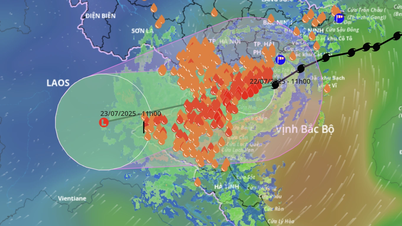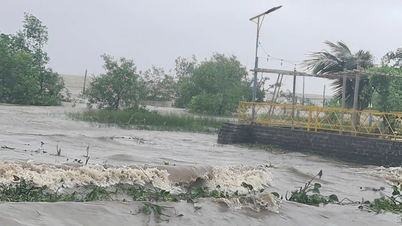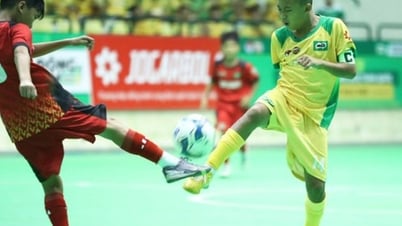Iron is an important nutrient that growing children need for a number of physiological functions, such as brain development. However, iron deficiency in children is relatively common and can progress to iron deficiency anemia.
According to a survey by the National Institute of Nutrition in 2019 - 2020, up to 60% of children under 5 years old in Vietnam are zinc deficient, 1 in 3 children are iron deficient. Iron deficiency will lead to anemia. When ignored for a long time, iron deficiency anemia will affect children's development and cause learning or behavioral problems, affecting the child's quality of life.
Eating a variety of foods from different food groups is the best way to provide your child with enough iron and prevent iron deficiency anemia. Foods provide two types of iron, heme iron and non-heme iron. Depending on your daily eating habits, you can choose from the nutrient-dense, iron-rich foods listed below.
I. 5 foods rich in heme iron
Animal foods such as meat, poultry, and seafood are rich sources of heme iron. Heme iron is more bioavailable than non-heme iron, with an absorption rate of about 20%, regardless of how you prepare and serve the food.
1. Duck breast (skinless)
Duck breast is a lean, nutrient-dense meat that you can enjoy as part of a balanced diet. An average 3-ounce boneless, skinless duck breast provides about 3.74 mg of iron, 16.4 grams of protein, and 222 mg of potassium, among other important nutrients.
2. Lean beef is a rich source of heme iron.
Beef is the richest source of heme iron. It also provides high-quality protein, B vitamins, zinc, and selenium. 100 grams of 80% lean ground beef provides 17.2 grams of protein, 1.94 mg of iron, 270 mg of potassium, and other important nutrients.
However, regular consumption of red meat has been linked to a number of health risks, such as heart disease. Therefore, you should only add lean beef to your child's diet 1-2 times a week, up to 4 times.

Children should eat a variety of foods to provide enough iron through nutrition.
3. Turkey eggs
One turkey egg (79g) provides 135 calories, 10.8g protein, 3.2g iron, and several other nutrients, such as selenium and phosphorus. A medium chicken egg (63g) provides 7.9g protein and 1.1mg iron, along with other essential nutrients. Try including turkey eggs in your child's diet along with other iron-rich foods.
4. Chicken liver
If your child is not a fan of meat, try chicken liver. Chicken liver is an iron-rich food, providing 9.2 mg of iron per 75g serving. It also provides high-quality protein, vitamin A, vitamin B2, vitamin B12, choline and copper.
5. Seafood
Seafood provides a significant amount of high-quality lean protein, omega-3 fatty acids, vitamin D, vitamin E and vitamin B. On average, a 3-ounce serving of salmon, tuna and prawns provides 0.68 mg, 0.65 mg and 1.8 mg of iron, respectively. Other seafood that children can enjoy in moderation to supplement iron are crab, clams, oysters, mussels, etc.
Associate Professor, Dr. Nguyen Thi Lam - former Deputy Director of the National Institute of Nutrition suggests: When children are iron deficient, mothers should choose iron-rich foods such as beef, eat 4 meals a week (50-70g beef/meal); feed children chicken, goose, duck liver... After 1-2 months without improvement, you can consult a doctor to supplement multi-micronutrient products including iron, or iron alone with vitamin C to improve iron deficiency.
II. 7 foods rich in non-heme iron
Non-heme iron is more difficult to absorb than heme iron. However, you can increase its bioavailability by feeding your child foods containing non-heme iron along with foods rich in vitamin C, such as citrus fruits, vitamin C-rich vegetables like tomatoes or bell peppers.
1. Dark green leafy vegetables
Spinach, broccoli, bok choy, asparagus, Brussels sprouts, and endive are some of the dark green vegetables that provide iron and several micronutrients for your child. Experts recommend that children aged 2-18 consume 1-3 cups of vegetables per day. Curries, soups, casseroles, sandwiches, and wraps are all great ways to add more vegetables to your child’s diet.
2. Dried fruit
Dried fruits, such as prunes, raisins, apricots, dates, and figs, are nutrient-dense foods that provide a significant amount of iron. You can add half a cup of dried fruit (equivalent to 1 cup of fruit) to your child's daily diet to provide enough iron for your child.
3. Soybeans
Soybeans and soy products are rich in protein and contain high amounts of iron. According to the United States Department of Agriculture , half a cup of cooked soybeans provides 4.4 mg of iron. Experts recommend consuming fermented soy products, such as tofu and tempeh, because the fermentation process increases the bioavailability of iron from soybeans.
4. Beans
Beans and lentils are protein-rich foods that can provide your child with a large amount of iron per serving. For example, one cup of cooked white beans provides 4.2 mg of iron. One cup of cooked chickpeas provides 2.5 mg of iron, while cooked string beans provide 2.1 mg of iron.
5. Mushrooms provide non-heme iron

Mushrooms are a good source of non-heme iron.
Mushrooms are a healthy food with a rich nutritional profile. One cup of cooked mushrooms provides 2.7 mg of iron. You can prepare mushrooms in various forms and feed them to your child in meals to meet their daily iron needs.
6. Nuts
Nuts such as cashews, pumpkin seeds, and sesame seeds contain a significant amount of iron per serving. For example, a 1-ounce portion of cashews provides 1.9 mg of iron, while 15 grams of pumpkin and sesame seeds provide 2.1 mg of iron. However, be cautious and it is best to feed nuts to young children in the form of a finely ground flour or a thin, creamy nut butter.
7. Whole grains
Whole grains, such as whole oats, whole wheat, quinoa, and brown rice, have three parts—the bran, the germ, and the endosperm. The bran is the outer layer that contains several important micronutrients, including iron.
Parents should consult a dietitian and plan meals that include foods rich in heme and non-heme iron. If your child is a picky eater, ask your doctor if he or she needs an iron supplement to meet his or her iron needs. However, remember that most healthy children who eat a balanced diet do not need iron supplements.
Source: https://giadinh.suckhoedoisong.vn/12-loai-thuc-pham-giau-sat-tot-cho-suc-khoe-tre-em-172240522162437785.htm






































































































Comment (0)